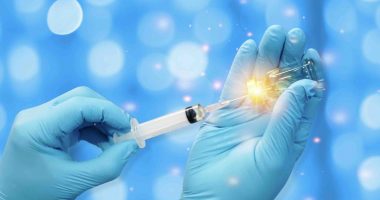- Antisense Therapeutics (ANP) and Murdoch Children’s Research Institute (MRCI) enter a new collaboration to further explore treatment for muscle diseases
- A research and development collaboration will investigate the potential of ATL1102 to deliver treatment for the control of immune mediated inflammatory muscle damage in muscle diseases by studying patient blood samples from children
- MCRI have applied for a grant to fund the research, while Antisense also says it expects to be eligible for the Australian Government R&D Tax incentive of 43.5 per cent rebate of costs
- Subject to participant recruitment this work is to be initiated in the second half of 2021
- Antisense is up 2.63 per cent, trading at 19.5 cents at 11:40 am AEST
Antisense Therapeutics (ANP) and Murdoch Children’s Research Institute (MRCI) have entered a new collaboration to further explore treatment for muscle diseases.
A research and development collaboration between Antisense and MCRI’s scientific researchers, Dr Peter Houweling and Associate Professor Shireen Lamande, will investigate the potential of ATL1102 to deliver breakthrough treatment for the control of immune mediated inflammatory muscle damage in muscle diseases.
ATL1102 has already been proven to assist Multiple Sclerosis and Duchenne muscular dystrophy (DMD) patients by reducing inflammatory brain lesions.
Antisense says it’s planning for the treatment to be assessed in its ex-vivo cell expression and modelling systems by studying patient blood samples taken from children afflicted by a range of muscle diseases. This will be used to explore ATL1102’s potential activity in these conditions.
Subject to participant recruitment this work is to be initiated in the second half of 2021.
To fund the research, MCRI have applied for a grant, while Antisense also expects to be eligible for the Australian Government R&D Tax incentive of 43.5 per cent rebate of costs.
“This collaboration is looking to build on ATL1102’s established research and clinical success to date to potentially broaden both ATL1102’s clinical utility in DMD and its application into other disease indications that fit with the company’s expertise and focus in immune mediated inflammatory disease and in the process broaden our development pipeline to build additional and substantial shareholder value,” Dr George Tachas, Director of Drug Discovery and Patents at Antisense Therapeutics said.
In addition to this, Antisense’s CD49d treatment, of which ATL1102 is an antisense inhibitor, has previously demonstrated activity in multiple disease animal models.
Experimental work in a mouse model has shown CD49d can reduce both the CD49d target in the muscle and muscle damage.
The company says the positive results in the animal model allows for the further study of antisense inhibition of CD49d effects in the model in combination with other DMD treatments including the dystrophin restoration drugs to assess the potential of the combination to improve therapeutic outcomes.
This work is set to be conducted in the second half of 2021, funded through ANP’s existing cash reserves.
Antisense was up 2.63 per cent, trading at 19.5 cents at 11:40 am AEST.







